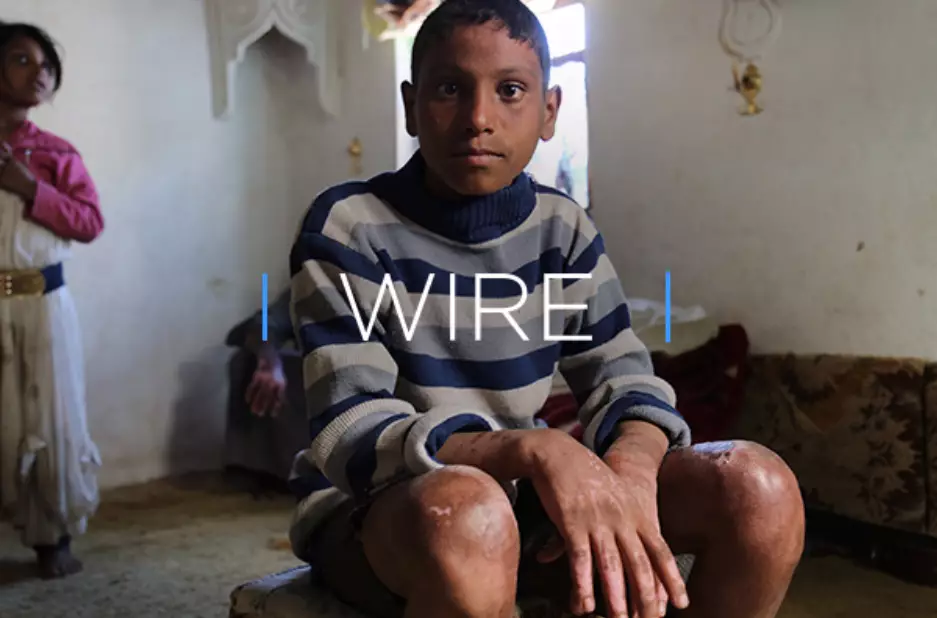
An overnight air raid this week near to Yemen's capital Sana'a has killed eight women and a child, in the latest of a series of devastating attacks in the Middle-Eastern country.
At least 10 more women have been injured after the raid on a funeral reception. A Houthi rebel spokesperson told the BBC the initial strike was followed by another which hit emergency responders.
The rebels have blamed a US and Saudi-backed coalition for the attack, which is yet to comment.
Violent conflict in Yemen has been ongoing for almost two years, killing and injuring thousands and leaving millions in desperate need of humanitarian assistance.
An estimated 21.2 million, or 82 percent of the population, are in need of assistance for essentials such as food and healthcare. These shocking numbers include almost 10 million children who are desperate for help.
Despite all of this, you probably won't have heard much about it, because Yemen is rarely reported on. Mostly this is due to insecurity and the country's limited access for the media; but because of this it remains a largely 'hidden crisis'. Meaning that, while people are rushing to donate to help children in Syria, the children of Yemen are going largely unnoticed.
The conflict in Yemen escalated dramatically in March 2015, when a Saudi-led coalition began a military campaign against Houthi rebels in support of Yemen's president, Abdrabbuh Mansur Hadi.
At least 10,000 people have been killed in the conflict so far, according to the UN. Figures from UNICEF's latest Monitoring and Reporting Mechanism (MRM) between 26 March 2015 and 31 January 2017, state that 1,490 children were killed and 2,321 injured. There have also been alleged breaches of international humanitarian laws, including the killing and maiming of children, 200 verified attacks on schools and 93 on hospitals. Civilian casualties, and deaths, are common.
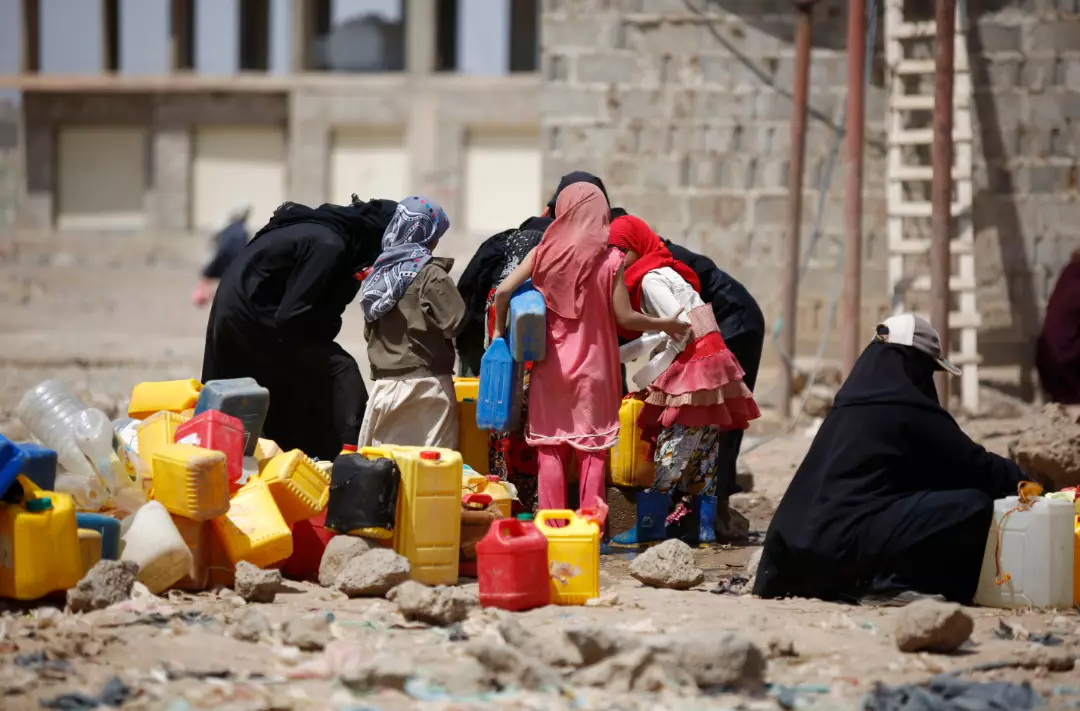
People by taps in Yemen. There is a severe shortage in some areas. Credit: PA
Advert
Even before the conflict, Yemen was the poorest country in the Middle East; almost 16 million people were in need of some sort of humanitarian assistance. The country has struggled through years of instability, lack of rule of law, environmental decline and, most crushingly, extreme poverty. Food, fuel for cooking and power, clean water and medical supplies are still scarce and are not getting through to the people who need them most.
And, yet, the international response to the crisis is far from adequate, both in terms of funding - the UN's $1.8 billion response plan is only 12 percent funded - and for coming up with a solution for the political unrest and to end the conflict. The UN has recently launched a new push for $2.1 billion.
Amongst all this mess Save the Children is stepping in to help children who are in danger - with just under half of Yemen's population aged under 18, this is a pretty massive task.
Zuhair* was just 13-years-old when he and his stepdad Waleed* were almost killed late last year in an airstrike on a funeral that killed 140 people. However, they didn't escape unscathed; both received burns in the attack, with Zuhair suffering from third degree burns to many parts of his body as his clothes caught alight.
Advert
This video tells their story.
Zuhair was badly burnt.
Waleed tells his heart-breaking story: "The hall was full of mourners. Suddenly, there was an unimaginably loud blast followed by a dazzling flash and a firestorm. I found Zuhair and carried him out of the hall. Both our clothes were on fire and burning our skin. Zuhair and I saw dozens of burned bodies and body parts - half bodies, heads, hands, legs, etc. Seconds later, we heard another airstrike, then a third one. They targeted the two entrance gates and the centre of the hall. I ran out to the main street for safety. We were lucky to escape with our lives. Many didn't.
"It was evening when we reached our home. My wife panicked when she saw our burned and swollen bodies. Our pain was unbearable, and we did not know what to do. Zuhair had burns on his hands, thighs, knees, legs and feet. We thought they were superficial burns and did not know what to do, unable to afford to take him to hospital. So we applied toothpaste, tomato paste, honey, herbs and some ointments on them for about a fortnight. During that period, Zuhair got very thin and weak, could not walk and screamed very loudly every day because of the pain."
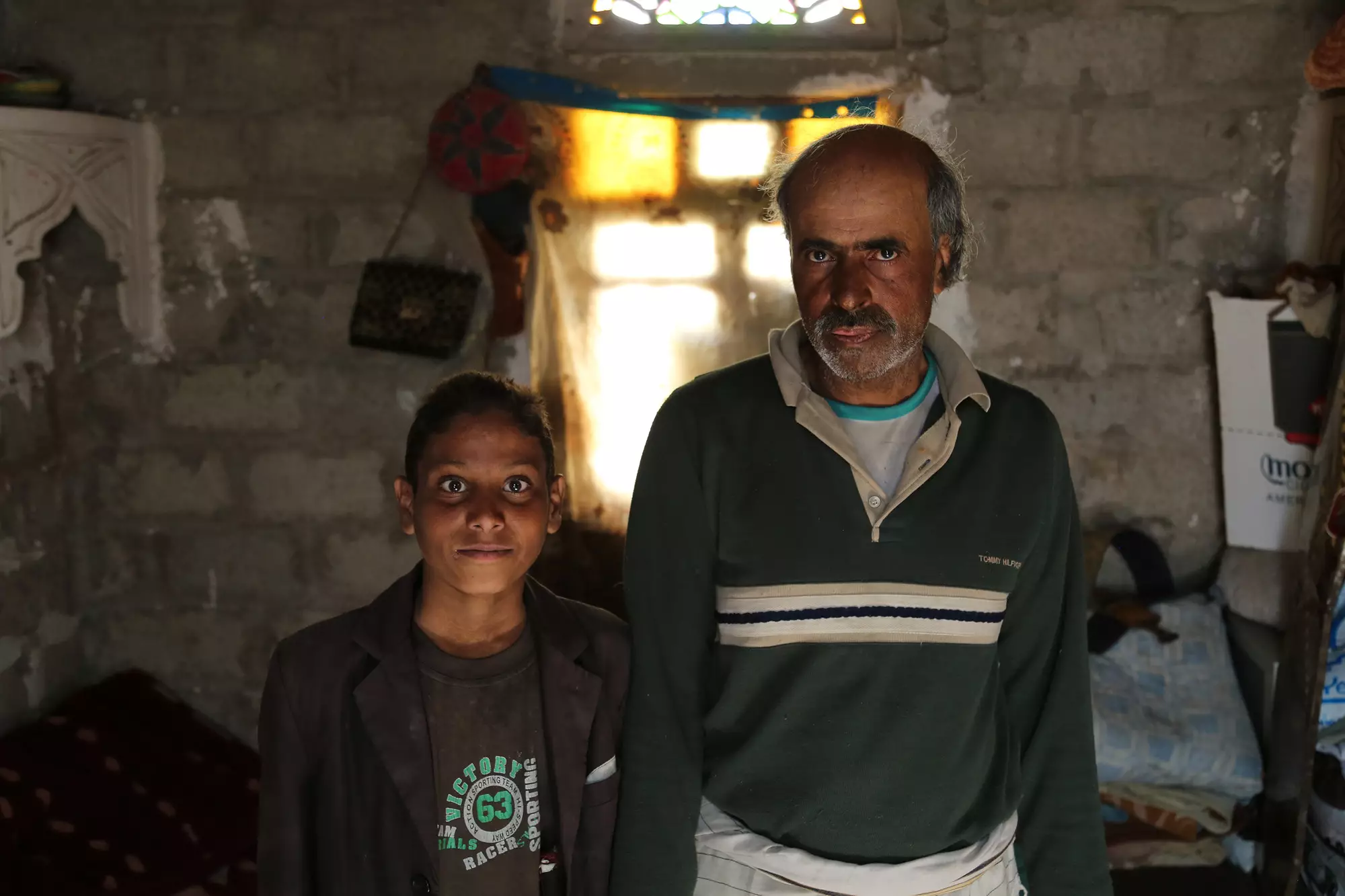
Waleed and Zuhair.
Advert
Luckily for Zuhair, help arrived in the form of Save the Children, when Zuhair's case was picked up via Save the Children's Child Protection Committee: a group of community members trained to identify children in need and report them to Save the Children's Child Protection staff.
They were able to intervene to ensure that he got the specialist treatment he needed, and they continue to help him to this day.
Waleed continued: "When they saw Zuhair, they immediately referred him to a local hospital where his wounds were cleaned and treated. Although Zuhair's physical condition has improved, he remains under a severe shock. He now suffers from recurrent nightmares and wakes up screaming most nights. 'Mum, the missile is going to hit us. The missile is going to kill us'.
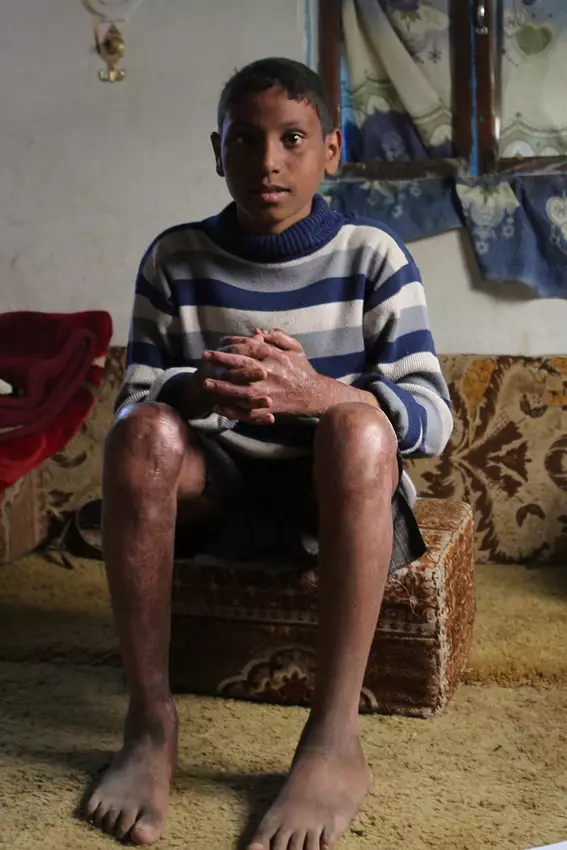
"When he hears a Saudi-led Coalition aircraft overhead, he runs to his mother and asks her to switch off the mobile phone because he thinks the aircraft can target his family through a SIM card," Waleed said.
"Zuhair still goes to school; he is in the third grade. However, his character has changed a lot - now he is uninterested, introverted, unsociable and fearful. I really hope that Zuhair improves and gets back to his normal psychological condition. I also want this war to end. We have suffered enough. The children are scared and hungry.
Advert
Save the Children will continue to coordinate and provide psychological support sessions for Zuhair in order to help him overcome his traumatic experience and hopefully set him on a path for a better future.
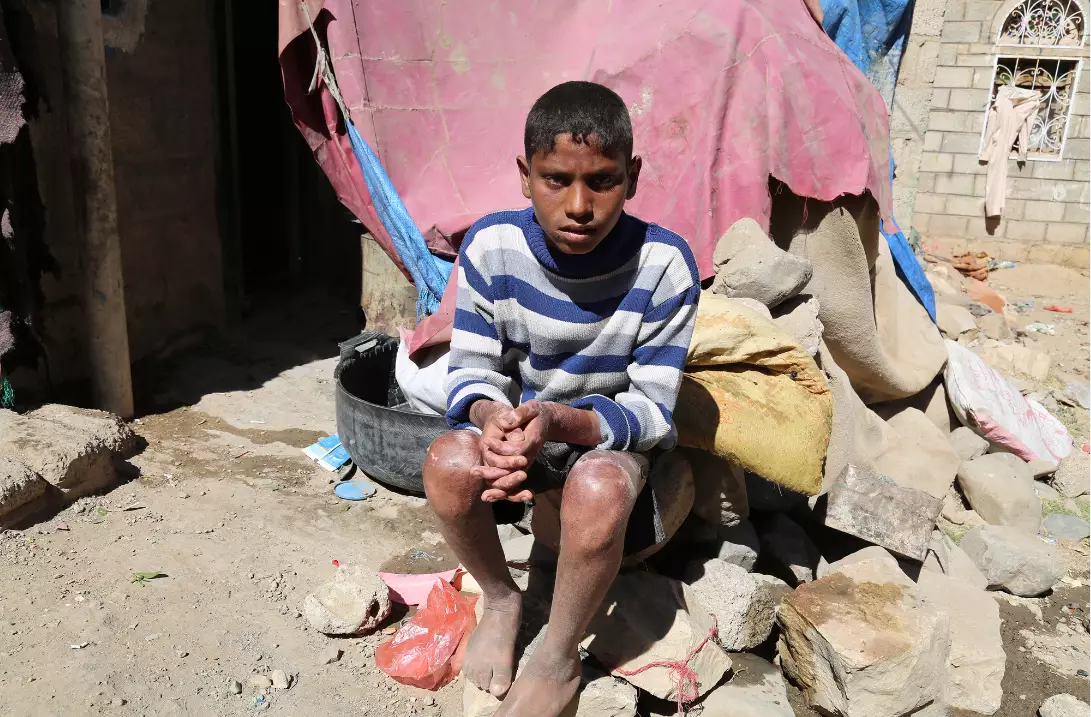
Children who have not been directly affected by the conflicts will still be feeling a trickle down from the fall out. A shocking one in every three children under five - around 1.3 million - are suffering from malnutrition; around eight million children of any age do not have enough to eat each day. Families are struggling to make ends meet because they have had to move due to the conflict and lost their livelihoods along the way.
Malak* and Lua'e* were displaced from Sa'ada, in north Yemen, and now live with their family in Amran. The 16 members of their extended family don't have any source of income after their father Mohammed* lost his grocery shop. Fortunately, the family was helped by the Save the Children Cash Transfer Project and was able to buy essentials and pay rent; but this is just one case, out of millions.
While the future for Zuhair, Malak and Lua'e might be looking a little brighter, the future for Yemen still remains unclear.
*All names have been changed to protect identities.
If you'd like to support the work Save the Children are doing in Yemen, and around the world, then you can donate here.
Featured Image Credit: